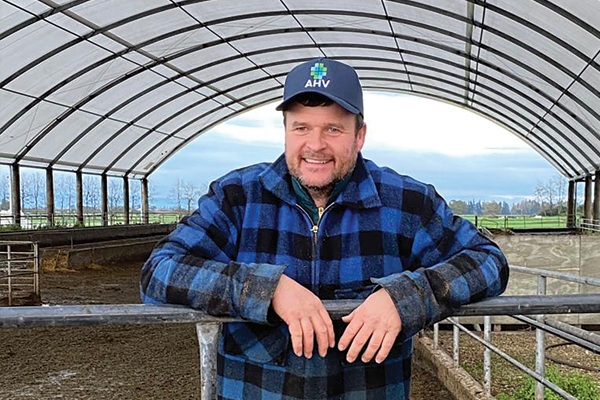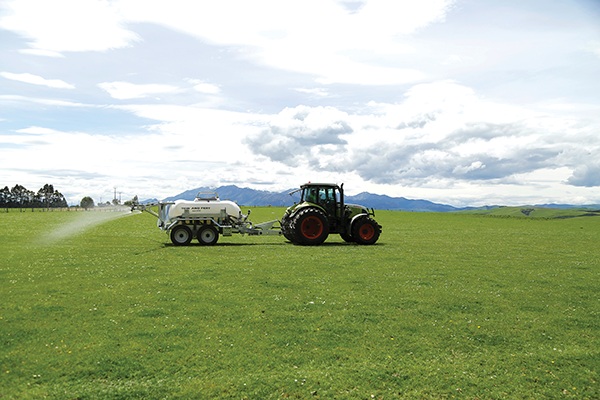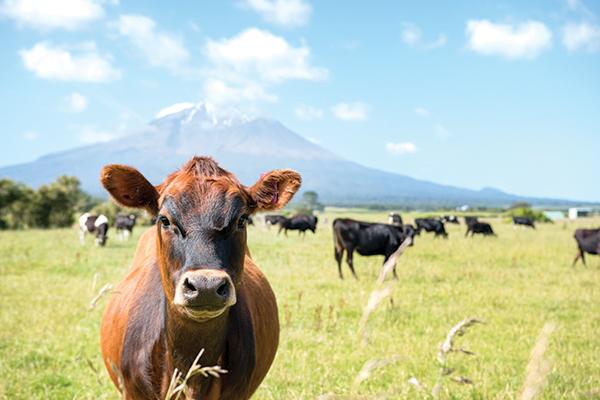Anne Hardie
Farmers spend decades developing their farm business and many will sell at retirement which usually gives them considerable funds to invest. Just how those funds are invested depends on age, objectives and how risk adverse you are.
Smartshares client director Thom Bentley says the first step for anyone who has some money and is interested in investing, is to think about their objectives and time horizons including short, medium to long-term needs.
In the short term you may need or want some of those funds for a holiday, re-carpet the home or buy a new car and he says that money needs to be kept in cash or low-risk investments.
In the medium term you need to take a little bit of risk. This is planning for about three to seven years ahead and for that time frame it’s advisable to put some of your funds into bonds as well as some into shares and listed properties.
‘Risk is an interesting issue in itself. It really depends on your time horizons. If you look at history, the best thing to invest in over a 30-year period is shares. But over a one-year period it’s a risky investment. Seven to 10 years is what you need to be looking at to invest in shares.’
For that longer-term horizon, you need to think about taking a bit more risk, he says, such as shares and listed property trusts on the sharemarket or Smartshare funds specifically targeting listed property. That provides better yields than the bank but you don’t have that problem with low liquidity in actual property.
“A lot will be driven by how old you are. If you’ve sold the farm at 55 to 60 you have to plan 25 to 30 years because the average life expectancy is 85 for men and 90 for women. You can’t afford not to take risk with money.
“If you put the money in the bank, after tax and inflation you’re really going nowhere.”
Think about how much money you are going to need to meet your objectives and how much income do you need, he advises. Then go to two to three qualified advisors and get some advice on setting up a portfolio. They will probably come up with two to three different recommendations and then it’s up to you as an individual to decide what that portfolio will look like.
Diversity is key and that’s where an index fund investment platform such as Smartshares makes it easier for investors, he says. It has 31 Exchange Traded Funds (ETF) to choose from, which means you get a range of investments such as listed companies or Government bonds to spread your risk. Investors can build a portfolio to meet their objectives that includes New Zealand shares through to United States small companies to listed companies to global bonds.
“If you are 60 now, you really do have to have some shares in listed property. Some people aren’t perhaps very comfortable with that (because of risk). Risk is one those things people think about; the risk of losing money. But over the long term, the risk of inflation eats into your money.
“Risk is an interesting issue in itself. It really depends on your time horizons. If you look at history, the best thing to invest in over a 30-year period is shares. But over a one-year period it’s a risky investment. Seven to 10 years is what you need to be looking at to invest in shares. Anything less than that you need to be looking at fixed interest like bonds.
“I think the most important thing to do is take some time and really think about what you want to achieve. Most people selling farms will have a significant amount of money. It’s good to take some time and get a few opinions and not rush into anything and think about those key objectives. How much you want in cash and then bonds and listed property. Whether it’s $100,000 or $5 million, it’s the same process. How long you want to invest that money for and how much income you want.”
Selling the farm or part of the farm can produce a substantial amount of money to invest and Rival Wealth certified financial planner Tim Fairbrother advises seeking help with those investment decisions in the same way you need the help of a lawyer and accountant with those funds. Quite often a son or daughter may buy part of the farm and the parents still have some sort of ownership or income from the farm which provides the long-term investment.
He echoes the need for goals for a couple heading into retirement with money to invest, though each spouse may have quite different goals that need to be considered.
“The husband and wife’s goals are probably different. Dad wants to keep going to the farm and mum wants to travel.”
Plus, they may want to consider tying in some of their goals with the next generation and the generation after that, like helping the grandkids.
“You need a debt-free home to live and some lifestyle assets like a bach to spend time with the grandkids, or a boat.”
He says the short-term investment should include $30,000 to $40,000 for a rainy day or health issues. It’s money on hand to use when it’s suddenly needed.
Medium-term investments is money invested in shares and bonds or a managed portfolio with good growth. But he says it also needs some liquidity so they can top up the rainy-day fund.
Before investing, do some research about investment scams and know the signs that will give it away as a scam, advises Commission for Financial Capability (CFFC) fraud education manager Bronwyn Groot.
She says investment scams are growing in sophistication as fraudsters target farmers and professionals who are used to backing themselves, making judgement calls and spotting opportunities. Victims on her books include a chief executive who lost $16,000, a pilot who lost $25,000, a doctor who lost $30,000 and a farmer who lost more than $250,000.
In cases like these, the brokers are not registered, the bank accounts not legitimate share trading accounts, the shares non-existent, and their money is gone.
The victims are not gullible, but they are up against international cartels that have the technology, time and money to keep one step ahead. Her advice – know the signs of an investment scam.
Cold calling is illegal in New Zealand. If you receive an investment offer by cold call, it’s almost certainly a scam.
Do your research. Search the bank account’s name in the companies register of the country it’s in. If it’s not registered, it’s fake. If it was only registered a month or two ago, be suspicious.
Ask the broker for their full name and registration number, then contact the regulator in that country to check if they are legitimate.
In New Zealand, financial advisers and financial institutions must be registered with the Financial Markets Authority (FMA).
NZ banks have rules on lending money to buy shares. If the broker tells you to lie to the bank about why you want to borrow money, it’s likely a scam.
If you suspect a scam, go to www.fma.govt.nz It keeps a list of scam companies, and you can report your suspicions to them.





